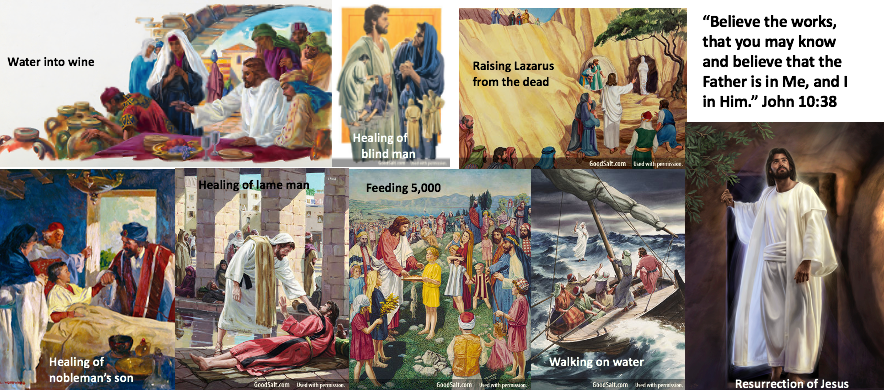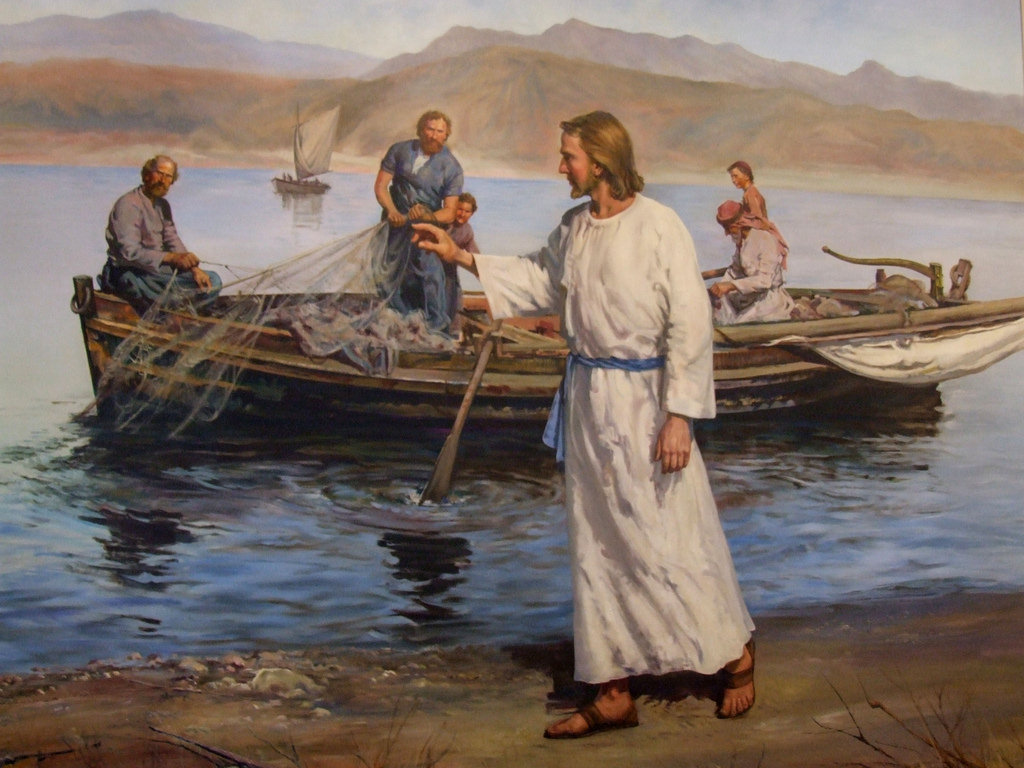“And I will pray the Father, and He will give you another Helper, that He may abide with you forever.” John 14:16
A few years ago I watched the movie “Spotlight” which is based on a true story of how the Boston Globe newspaper’s spotlight team uncovered the massive scandal of child molestation and cover-up within the local Catholic Archdiocese. The many victims of abuse had been ignored by the Catholic Church and the Boston community. Near the end of the movie, many victims called in to the Spotlight department after they ran an article entitled, “Church ignores abuse by priests for years.” For years victims of sexual abuse were abandoned by people who knew about the abuse but turned the other way.
We might think, “Well, that is just the Catholic Church. That would not happen among true born-again Christians.” Evangelical churches would not ignore the victims of such abuse, right!?! Mission agencies would not tolerate such horrific treatment of their own people. Right?! Wrong! These assumptions are one of many factors that has hindered evangelicals and Bible-believing mission agencies from dealing with sexual abuse among their own people.
Former gymnast, Rachael Denhollander, says she was fifteen-years old when US Olympic team doctor, Larry Nassar, started sexually abusing her. In an interview with Christianity Today, she says, “Church is one of the least safe places to acknowledge abuse because the way it is counseled is, more often than not, damaging to the victim. There is an abhorrent lack of knowledge for the damage and devastation that sexual assault brings. It is with deep regret that I say the church is one of the worst places to go for help. That’s a hard thing to say, because I am a very conservative evangelical, but that is the truth. There are very, very few who have ever found true help in the church…” 1
Mission agencies that once denied the possibility of sexual abuse among their missionary families have had to come to grips with the harsh reality that such abuse has and does take place among conservative evangelical missionary families. In fact, I was told by one mission agency leader in the Philippines, that sexual abuse takes place in every culture and subculture, Christian or non-Christian. All people are fallen and broken because of sin.
Sexual abuse victims are often isolated and left alone to deal with their pain and shame. Those who are abused within the church are wanting to know, “Where is God in all of this? Has God abandoned me? Why did He permit this to happen to me?”
The feeling of being left alone, not only haunts victims of sexual abuse, it also haunts the “divorcee in that apartment… or the one who just buried his or her life’s companion… or the couple whose arms ache for the child recently taken… the young nurse in 1967 who, after a shattered romance and broken engagement, went back to the Midwest to start over… like the disillusioned teenaged girl, away from home and heavy with child – wondering, ‘How can I face tomorrow?’” 2 Because of COVID-19, many people are experiencing abandonment by family, friends, colleagues, and churches. Some of you reading this article may be feeling as though God has left you or abandoned you.
The disciples of Jesus may have asked that question, “How can I face tomorrow?” After Jesus announced His departure to His disciples, they became troubled (John 13:33-14:12). They were afraid to be left alone without Jesus present. They did not want to fight battles and face issues alone.
Like Jesus’ disciples, we may struggle with the fear of abandonment. A word, a tone of voice, or gesture or lack of it can drive us to act in ways that we think will prevent someone from leaving us. But we do not have to yield to our fear of abandonment because Jesus has provided a Helper to encourage us during His absence.
In John 14:12-14, Jesus had promised His disciples that if they trusted Him, they would do greater works than He had done because He would go to the Father. Even though Jesus was leaving them, they were to continue His ministry of revealing the Father. Christ’s disciples would reveal His Father to a greater extent than He had done while He was on earth if they had faith in Him to work through them. The power to reveal the Father would be obtained through prayer in Jesus’ name.
For the next few days, we will learn how we can overcome the fear of abandonment. We can overcome the fear of abandonment by focusing on… THE PROMISE OF ANOTHER HELPER (John 14:15-16). Jesus said to His eleven believing disciples,“If you love me, you will obey my commandments.” (John 14:15). While Jesus was gone, the disciples would have an opportunity to show Christ just how much they loved Him. Jesus said, “If you love Me, keep My commandments.” The present tense of the first verb, “love,” (agapate) could be translated, “If you keep on loving Me…” 3 They could reveal their love for the Lord through their ongoing obedience to Him.
Notice that Jesus did not say, “If you fear Me, keep My commandments.” The fear of Jesus is not the motivation for obedience to Him. Instead, Jesus said, “If you love Me, keep My commandments.” Love for Jesus is the strongest motivation for obeying Him. Our obedience to Christ is the outgrowth of our love relationship with Him. First John 4:18-19 say, “18 There is no fear in love; but perfect love casts out fear, because fear involves torment. But he who fears has not been made perfect in love. 19 We love Him because He first loved us.”The more I experience the unconditional love and acceptance of Jesus Christ, the more my love toward Him will increase and express itself by obeying Him.
Some people may claim to love Christ while living in disobedience to Him. They may misconstrue that their love for the Lord is a feeling. But Christ makes it clear that our love for Him is revealed through our actions. Jesus taught His disciples that answered prayer is dependent upon obedience to Him (John 14:13-14; cf. 15:7). John writes in his epistle, “And whatever we ask we receive from Him, because we keep His commandments and do those things that are pleasing in His sight.”(I John 3:22). We can say we love the Lord, but what truly communicates our love for Him is obedience to His Word (cf. I John 3:18).
Think about this for a moment. If Jesus just told us with His mouth that He loved us and never took action, we would still be dead in our sins. God’s love involves the commitment to do what is best for others. Our love for Jesus is expressed through our obedience to Him.
Then Jesus said to His disciples, “And I will pray the Father, and He will give you another Helper, that He may abide with you forever.” (John 14:16). Jesus recognized the weaknesses of His disciples and their inability to fulfill the ministry of revealing the Father through their obedience to His commands, so He promises that the Father will send “another Helper.” The word “Helper”(paraklétos) literally means, “One who is called alongside to help.” 4 The disciples had been sent out to minister while Jesus was here on earth. But now they were being sent out to be His witnesses during His absence from the earth. Jesus had been their Helper while He was with them. In His absence, He would send “another Helper.”
This verse has much to say about the Trinity. Laney observes that “it is noteworthy that in vv. 13-14 Jesus commands His disciples to ‘ask’ (aiteō), the word used of an inferior asking a superior. But here Jesus uses the word erotaō (‘ask’), a word used of a request made to an equal. This has significant implications in terms of Jesus’ deity. Although submissive to the Father, Jesus regarded Himself as an equal (cf. 10:30; 14:9)” 5 to the Father.
Christ also considers the Holy Spirit to be equal to Himself by using the word “another” (allon) which means “another of the same kind.” 6 Jesus refers to the Holy Spirit as “another just like Myself.” According to Christ, there is equality among the Godhead (see diagram below). The Son is equal to the Father, and the Holy Spirit is equal to the Son. The Father, Son, and Holy Spirit are equal in every way as God, yet distinct in their tasks and relations to humanity.

Christ is saying in this verse that the Holy Spirit will do for them all that He had done for them while He was with them. So they would not be abandoned or left alone to their own wisdom and strength. This Helper would be with them “forever.” There would never be a time when this coming Helper would be taken away from them in the way Christ was now being taken from them through His death and eventual ascension to heaven.
You may ask, “If God the Holy Spirit is with me, why do I still feel all alone?” Because the Holy Spirit is not a feeling, He is a Person without a physical body. Rather than focus on our feelings to determine if we are alone and abandoned, we are to focus on what the Bible says about the Holy Spirit. Jesus said that this “Helper” will “abide with you forever.” The word “forever” is the English translation of three words in the original language and literally means “to the age” (eis ton aiōna). Jesus is saying that the Holy Spirit will continue with them (and us) until “the end of the world or time” itself to provide constant comfort, guidance, leading, power, protection, provision, and teaching. Unlike Christ who spent three and a half years with His disciples and then left them, Jesus now promises another equal Helper Who will never depart from them.
Think about this: how long is “forever?” It is permanent, isn’t it? It never ends. Even though you may feel alone, the truth is there will never be a time when the Holy Spirit is not “with you.” Feelings can lie to us. We may conclude, “I am alone because I feel alone.” That is a lie. We must not give our feelings more authority than God’s Word. Will we focus on a lie or on the unchanging truth of God’s Word? The choice is ours. If we feel alone it is because we are focusing on thoughts or feelings of loneliness which are contrary to the truth of Jesus. We need to follow the example of the Psalmist when he prayed to the Lord, “Remove from me the way of lying, and grant me Your law graciously.” (Psalm 119:29). We can ask the Lord to remove this lie from our thinking and to graciously renew our mind with this truth that God the Holy Spirit is always with us to provide constant assistance and strength whether we feel this way or not.
Prayer: Lord Jesus, thank You so much for sending God the Holy Spirit to supply our needs in Your absence. I must admit that I have given my feelings more authority than Your Word when I believe I am all alone. Thank You for reminding me that I am never alone, Lord Jesus. Your Holy Spirit abides with me forever! Holy Spirit, I want to give You everyone and everything in my life right now. Please restore my union with You and guide me into a deeper connection with You, the Father, and Jesus. In the mighty name of Jesus Christ I pray. Amen.
ENDNOTES:
1. http://www.christianitytoday. com/ct/2018/january-web-only/rachael-denhollander-larry-nassar-forgiveness-gospel.html.
2. Adapted from Chuck Swindoll’s Growing Strong in the Seasons of Life (Grand Rapids: Zondervan, 1994), pp. 164-165.
3. J. Carl Laney, Moody Gospel John Commentary (Chicago: Moody Press, 1992), pp. 260-261.
4. J. Dwight Pentecost, The Words & Works of Jesus Christ, (Grand Rapids: Zondervan, 1981), pg. 438.
5. Laney, pg. 261.
6. A. T. Robertson, Word Pictures in the New Testament, Vol. V., Gospel of John, (Grand Rapids: Baker Book House, 1932), pg. 252.










